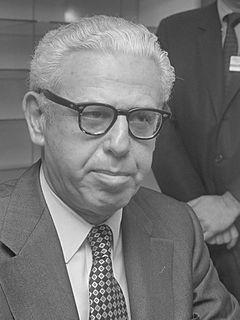A Quote by Jodi Picoult
There are so many ways to betray someone. You can whisper behind his back. You can deceive him on purpose. You can deliver him into the hands of his enemy, when he trusts you. You can break a promise. The question is, if you do any of those things, are you also betraying yourself?
Related Quotes
[What for] was the first question he asked about any activity proposed to him - and nothing would make him act, if he found no valid answer. He flew through the days of his summer month like a rocket, but if one stopped him in mid-flight, he could always name the purpose of his every random moment. Two things were impossible to him: to stand still or to move aimlessly.
By altering his arrangements and changing his plans, the skillful general keeps the enemy without definite knowledge. By shifting his camp and taking circuitous routes, he prevents the enemy from anticipating his purpose. At the critical moment, the leader of an army acts like one who has climbed up a height and then kicks away the ladder behind him.
I need not ask whether I may call on Him or not, for that word 'Whosoever' is a very wide and comprehensive one...My case is urgent, and I do not see how I am to be delivered; but this is no business of mine. He who makes the promise will find ways and means of keeping it. It is mine to obey His commands; it is not mine to direct His counsels. I am His servant, not His solicitor. I call upon Him, and He will deliver.
A man who gives way to his passions is like a man who is shot by an enemy, catches the arrow in his hands, and then plunges it into his own heart. A man who is resisting his passions is like a man who is shot by an enemy, and although the arrow hits him, it does not seriously wound him because he is wearing a breastplate. But the man who is uprooting his passions is like a man who is shot by an enemy, but who strikes the arrow and shatters it or turns it back into his enemies heart.
Were I to go down into the market-place, armed with the powers of witchcraft, and take a peasant by the shoulders and whisper to him, 'In your lifetime, have you known peace?' wait for his answer, shake his shoulders and transform him into his father, and ask him the same question, and transform him in his turn to his father, I would never hear the word 'Yes,' if I carried my questioning of the dead back for a thousand years. I would always hear, 'No, there was fear, there were our enemies without, our rulers within, there was prison, there was torture, there was violent death.
In that hour of trial it was the love of his master that helped most to hold him firm; but also deep down in him lived still unconquered his plain hobbit-sense: he knew in the core of his heart that he was not large enough to bear such a burden, even if such visions were not a mere cheat to betray him.
Once committed to fight, cut. Everything else is secondary. Cut. That is your duty, your purpose, your hunger. There is no rule more important, no commitment that overrides that one. Cut. Cut from the void, not from bewilderment. Cut the enemy as quickly and directly as possible. Cut decisively, resolutely. Cut into the enemy’s strength. Flow through the gaps in his guard. Cut him. Cut him down utterly. Don’t allow him a breath. Crush him. Cut him without mercy to the depths of his spirit." -Richard Rahl
Jesus has many lovers of His kingdom of heaven, but he has few bearers of His Cross. Many desire His consolation, but few desire His tribulation. He finds many comrades in eating and drinking, but He finds few hands who will be with Him in His abstinence and fastingBut those who love Jesus purely for Himself, and not for their own profit or convenience, bless Him as heartily in temptation and tribulation and in all other adversities as they do in time of consolation. And if He never sent them consolation, they would still bless and praise Him.
Cold?" Ravus echoed. He took her arm and rubbed it between his hands, watching them as though they were betraying him. "Better?" He asked warily. His skin felt hot, even through the cloth of her shirt, his touch was both soothing and electric. She leaned into him without thinking. His thighs parted, rough black cloth scratching against her jeans as she moved between his long legs. His eyes half-lidded as he pushed himself off the desk, their bodies sliding together, his hands still holding hers. Then, suddenly, he froze.
In all His acts God orders all things, whether good or evil, for the good of those who know Him and seek Him and who strive to bring their own freedom under obedience to His divine purpose. All that is done by the will of God in secret is done for His glory and for the good of those whom He has chosen to share in His glory.
Pressed up against him, I can feel the thud of his heart against mine, his ribcase expanding and contracting rapidly against my chest, the warm whisper of his breath tickling the side of my neck, the brush of his leg against my thigh. Resting my arms on his shoulders, I pull back a little to get a look at his face. But he isn't smiling any more.



































